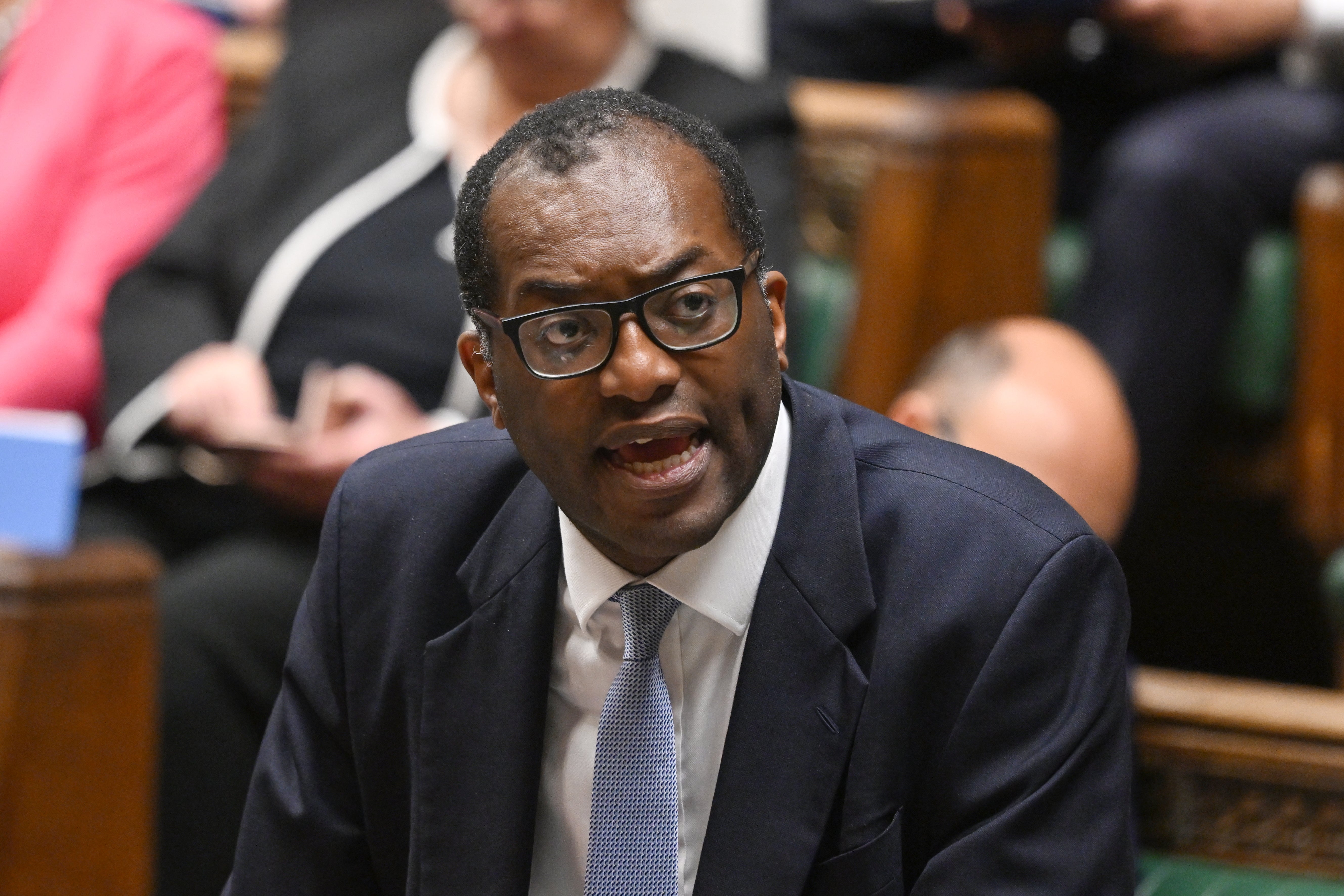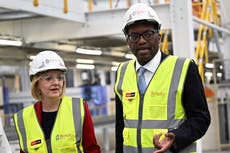When is the next Bank of England interest rate announcement?
Pound plummets as currency markets react against new chancellor’s drastic ‘mini-Budget’, prompting fears emergency intervention could become necessary
The value of the British pound has plummeted in the wake of new chancellor Kwasi Kwarteng’s tax-slashing, borrowing-fuelled “mini-Budget”, inviting speculation that the Bank of England (BoE) could be forced to step in to make an emergency adjustment to interest rates.
Dropping by almost five per cent to $1.03 when the Asian currency markets opened on Monday morning, the pound is now at an all-time low against the US dollar as investors react against Mr Kwarteng’s strategy to drive growth, suggesting they believe Britain’s finances will be stretched to breaking point by a plan the Labour Party has characterised as “reckless gambling”, an opinion shared by many economists and even some Conservative MPs.
Incredibly, some Tories have already begun submitting letters of no confidence to the 1922 Committee of backbenchers expressing their concern about the stewardship of prime minister Liz Truss – just three weeks on from her victory over Rishi Sunak in the party leadership contest.
The chancellor’s plan, presented to Parliament on Friday, was widely seen as favouring the rich and included such measures as scrapping the 45p top rate of income tax, dropping a cap on bankers’ bonuses and cuts to corporation tax, stamp duty and a proposed rise in national insurance contributions.
Mr Kwarteng claimed his measures would amount to a combined £45bn in tax cuts per annum and attract new foreign investment that would revive a British economy battered by a cost of living crisis and spiralling inflation.
But his optimism does not appear to be widely shared, with Adam Posen, a former member of the BoE’s Monetary Policy Committee (MPC), among those warning that further intervention from the central bank may now be needed.
Chris Weston, head of research at foreign exchange broker Pepperstone, agreed with that assessment, commenting: “Sterling is getting absolutely hammered. Investors are searching out a response from the Bank of England. They’re saying this is not sustainable.”
Paul Dales, of Capital Economics, said that the BoE should step in and implement a “large and immediate interest rate hike” of at least 100 basis points to 3.25 per cent to stop the pound from falling further.
Governor Andrew Bailey “needs to get on the front foot”, Mr Dales said, adding: “By bringing forward a lot of the policy tightening that might need to have happened anyway, the Bank would demonstrate in no uncertain terms that whatever the government does it will ensure that inflation returns to 2 per cent. This would go a long way to easing the crisis.”

The BoE only adjusted interest rates last week, raising them from 1.75 per cent to 2.25 per cent, having had to suspend its latest appraisal out of respect for the late Queen Elizabeth II.
They are now being forecast to hit 6 per cent next year.
The MPC is next scheduled to meet and vote on interest rates at 12pm on 3 November, where another 1.75 per cent rise to 4 per cent is being forecast, and then again on 15 December.
But should the BoE choose to make an emergency intervention earlier, it would mark the first time it had done so since the outbreak of the coronavirus pandemic in March 2020 when special measures were required to steady an economy slammed into lockdown.
Making rapid rate rises is not without peril for the Bank, however, with some warning that such steps risk having an adverse effect and undoing the benefit of Mr Kwarteng’s tax cuts.
“Speculation has been sparked that the MPC may be forced into considering huge emerging market-style rate hikes to prevent further sharp losses in the value of the pound,” said Jane Foley, FX strategist at Rabobank.
“This, however, could test Bank of England credibility, could pressure demand aggressively and thus could undo the impact of Kwarteng’s tax cuts, leaving only the legacy of higher debt.”
Join our commenting forum
Join thought-provoking conversations, follow other Independent readers and see their replies
Comments



Bookmark popover
Removed from bookmarks